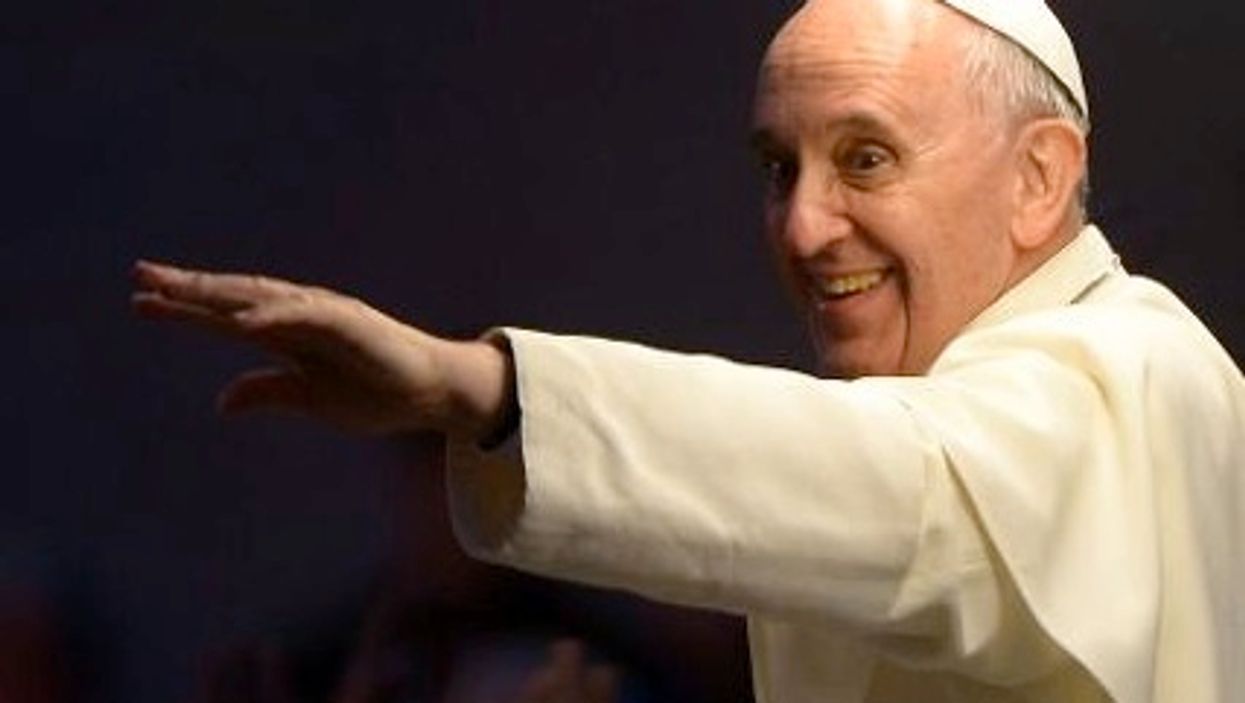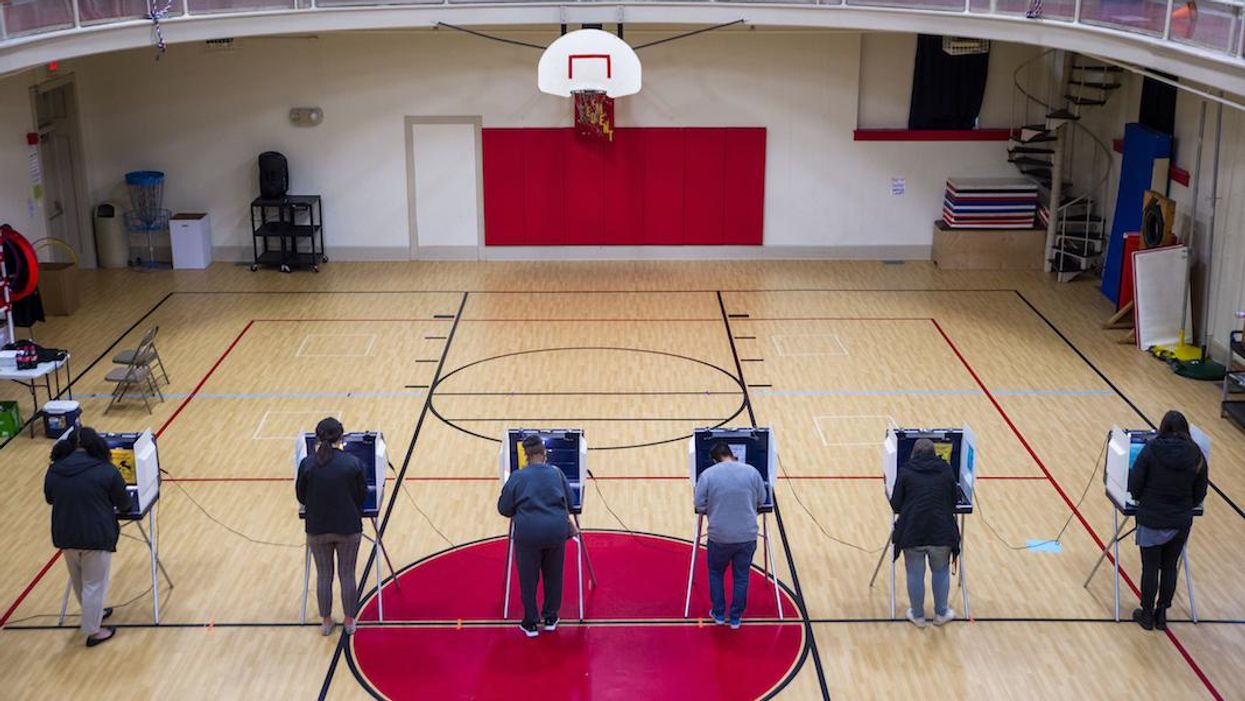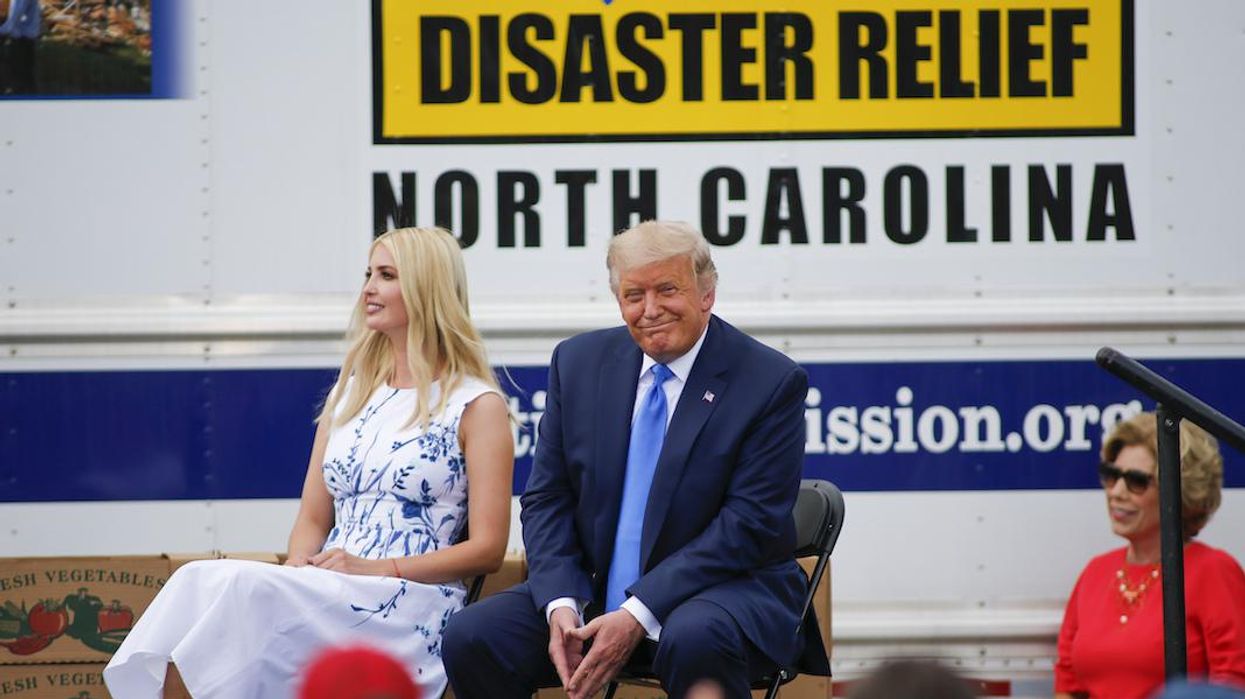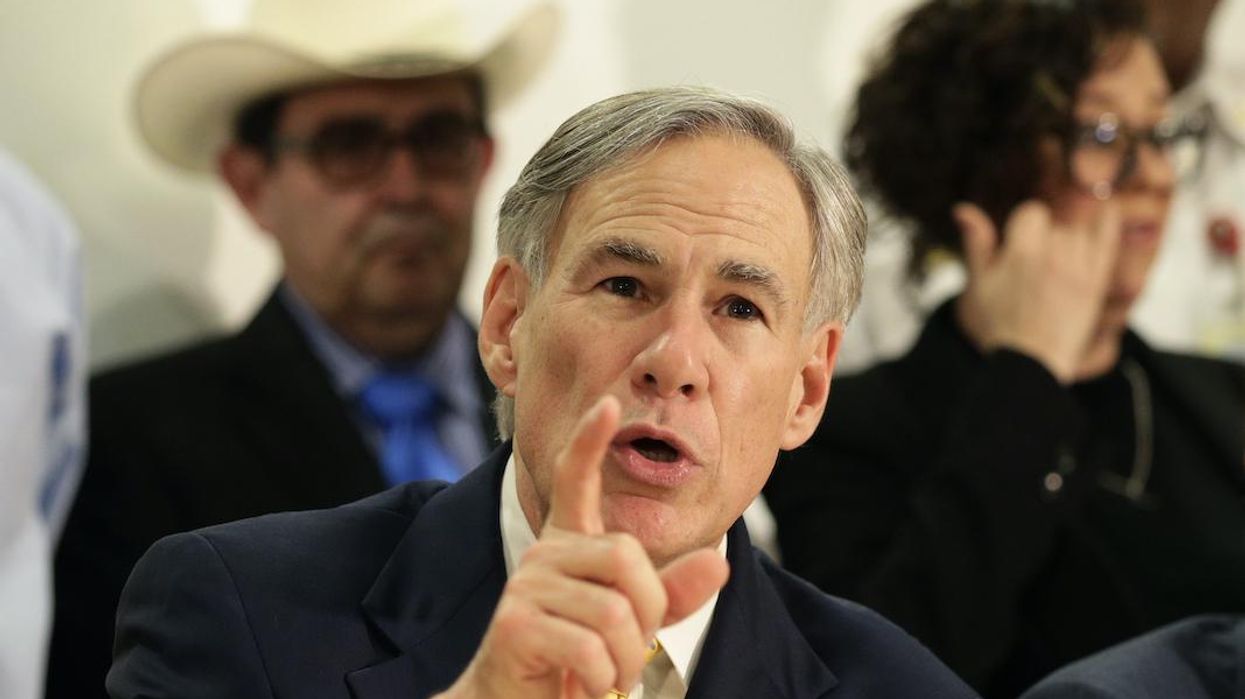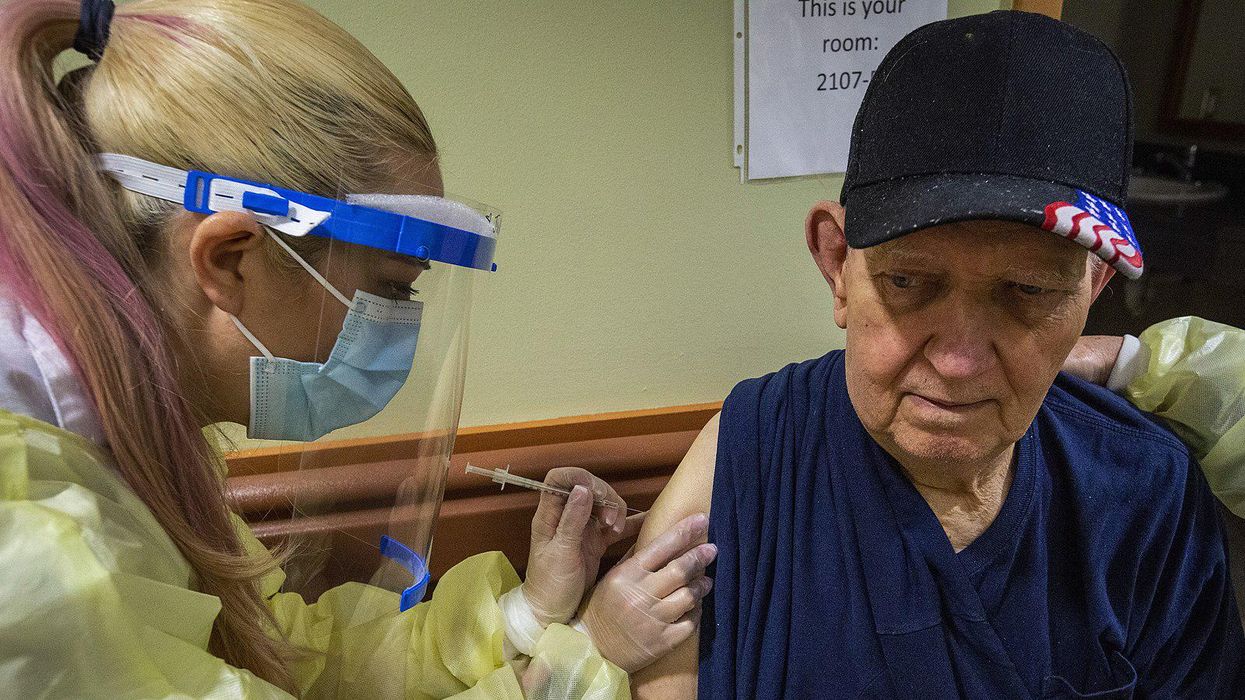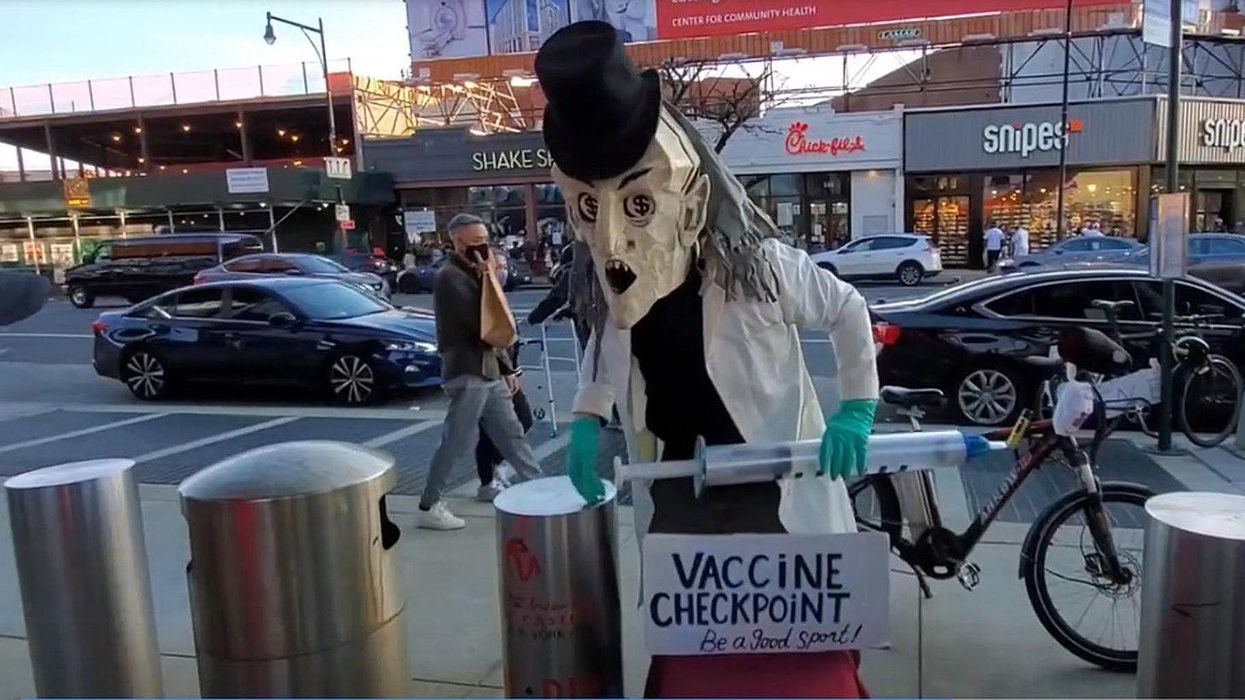Poll: Most Americans Reject Religious Exemption From Vaccine Mandates
Majorities of Americans across all major religious denominations believe there is no legitimate religious basis to object to getting vaccinated against COVID-19, new public opinion research shows, yet religious objections to vaccine mandates remain a popular and effective way for vaccine-hesitant individuals to avoid the shots.
Just over one in ten Americans say getting a COVID-19 vaccine would violate their religious beliefs, according to a Public Religion Research Institute and Interfaith Youth Core survey released in December, while 60 percent agree that there are "no valid religious reasons to refuse a COVID-19 vaccine."
Meanwhile, 59 percent of Americans told the pollster they thought too many people were using religion as an excuse to avoid COVID vaccines, and just under half (47 percent) of respondents went so far as to endorse eliminating all requests for COVID vaccine exemptions on religious grounds.
As with most matters pertaining to the pandemic, however, Americans' opinions were split along partisan lines. A total of 20 percent of Republicans indicated that getting vaccinated against COVID-19 went against their personal religious beliefs, compared to just seven percent of Democrats. Among those who said they got their news primarily from far-right outlets like OAN and Newsmax, known for amplifying anti-vaccine content, the number with religious objections jumped to 41 percent.
Unsurprisingly, those who've refused to get vaccinated against COVID-19 expressed the strongest opinions in support of religious exemptions: 52 percent in that group indicated the COVID shots violated their personal religious beliefs, and just over three in ten said they have already asked or planned to request a religious exemption to a vaccine requirement.
As the American Independent Foundation was among the first to report, religious exemptions stand as one of the few legal avenues for vaccine objectors to avoid vaccine mandates. When more employers and government entities began requiring vaccines, some vaccine skeptics turned to online marketplaces to purchase such exemption request letters, the investigation showed.
In October, the Biden administration moved to tighten the rules relating to religious vaccine exemptions, with the Equal Employment Opportunity Commission formally noting that employers could reject exemption requests if granting unvaccinated employees' accommodations would place an "undue burden" on their workplace.
Yet in recent weeks, several Republican-led states have enacted new policies making it easier for religious objectors to avoid vaccination. In Kansas, lawmakers approved a measure that requires employers to grant any request for a religious exemption to a COVID-19 vaccine mandate so long as the request was submitted in writing. In Utah, lawmakers went even further, enabling objectors to dodge vaccine mandates based on any "sincerely held personal beliefs," even if those beliefs aren't tied to a specific religious identity.
Yet the issue of religious exemptions is hardly settled law. On Monday, for example, the Supreme Court declined to block a vaccine mandate for New York health care workers even though the policy didn't allow for religious exemptions.
No major religious denomination or sect directs its members to resist COVID vaccines, and in fact, many spiritual leaders have been among the most vocal advocates encouraging vaccination. Pope Francis has called getting vaccinated against COVID-19 an "act of love," while several Catholic leaders across the U.S. have formally instructed priests not to grant religious exemption requests.
But the practice remains popular, with growing numbers of U.S. service members, health care workers, city staff, and private employees seeking exemptions as a means of bypassing mandates.
The poll showed that majorities of Americans did endorse granting exemptions for those who have refused other vaccines in addition to COVID, those who belonged to a religious sect known to ban vaccination, and those who had a letter from their religious leader attesting to their beliefs against vaccines. Only 39 percent of Americans said anyone who simply says vaccines violate their beliefs should get one, though 57 percent of Republicans indicated they supported that view.
The PRRI-IYC poll was conducted online from October 18 through November 9, included responses from 5,721 Americans 18 and older across all 50 states, and had a margin of error of plus or minus 1.7 percentage points.
Published with permission of The American Independent Foundation.

